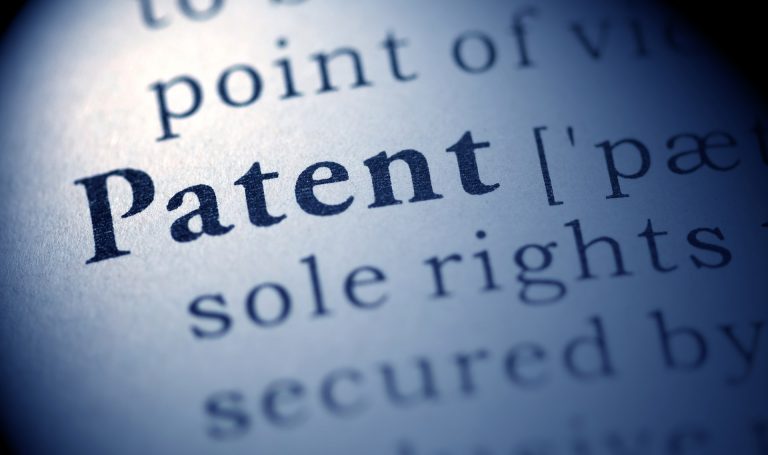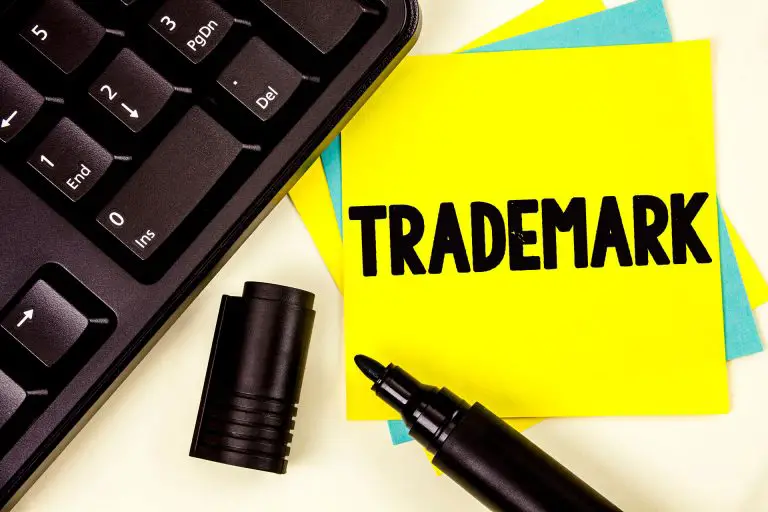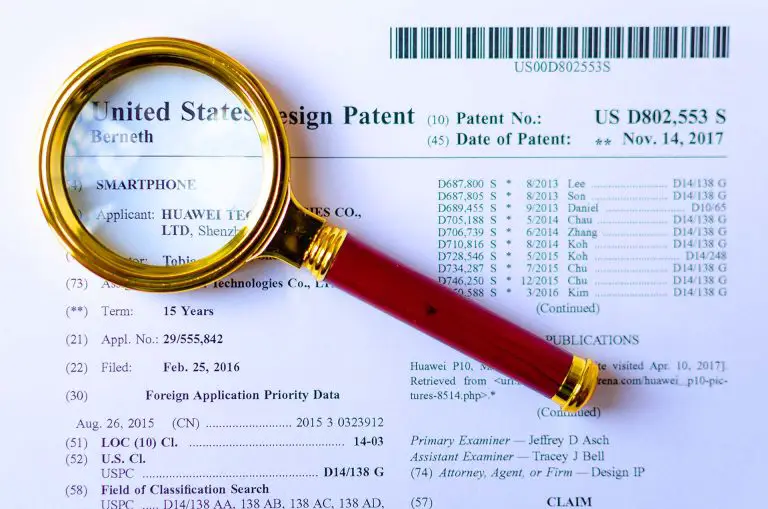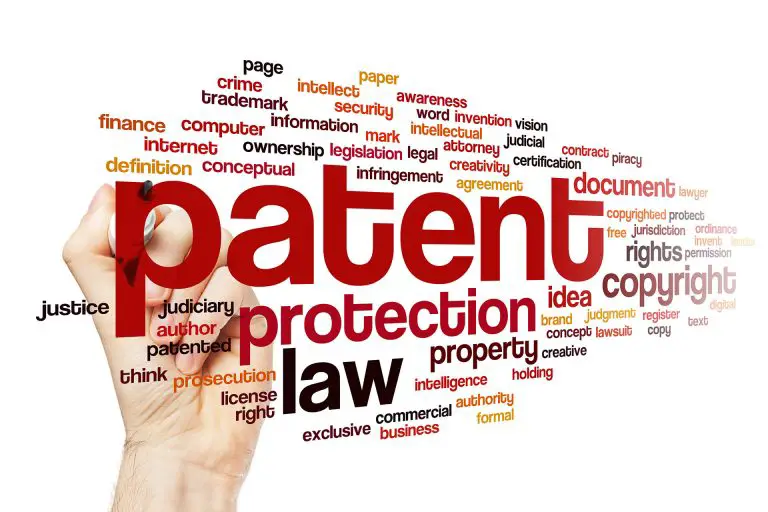Do You Need a Lawyer to Get a Patent?
Inventors often choose to hire an attorney to patent an invention because patent law is quite complex. Making even small mistakes when preparing a patent application can cost an inventor a ton of time and money down the road, as such hiring an attorney is a responsible decision to make that may save you time and money down the road. That said, do you have to hire an attorney to get a patent? We will answer this question below.
Do You Need a Lawyer to Get a Patent?
The shower answer is no, you do not need a lawyer to get a patent. In fact, the USPTO offers free help to inventors seeking to patent their invention on their own. That said, they do recommend that applicants hire an attorney.
The USPTO recommends that applicants hire an attorney because the patenting process is quite complex, requiring applicants to have extensive knowledge about US Patent Law.
If an inventor does not have experience patenting inventions, it’s highly recommended that he seeks the help of an attorney.
If you cannot afford an attorney, you should visit the USPTO website where they may be able to match you with a patent attorney who offers pro bono work (free services). There are certain qualifications that you need to meet in order to qualify.
If you do qualify to be assisted by a patent attorney pro bono, remember that although the attorney’s services are free, you are still liable for paying the patenting fees charged by the USPTO. There is no way around the patent office fees.
That said, if you satisfy certain requirements, you may be eligible for reduced fees at the patent office, nevertheless, you will need to pay fees to patent your invention. There is no such thing as a free method to patent an invention.
So, what should you do if you can’t hire a patent attorney?
If you don’t have the money for a patent attorney, you should explore the option of hiring a patent agent. Patent agents, like patent attorneys, are licensed by the patent office to assist inventors with patenting their inventions.
Patent agents can assist inventors with performing a prior art search, preparing patent applications, prosecuting them, and dealing with the patent office on behalf of their clients.
That said, patent agents cannot represent inventors in matters before the court. So, if for some reason you need legal help where someone needs to appear in court, only an attorney can help you such a task.
So, to answer the main question of whether you need an attorney to get a patent, the short answer is: no, you don’t, but it’s highly recommended that you do, especially if you don’t have experience patenting inventions.
What Type of Lawyer Do You Need to Get a Patent?
To choose the correct type of patent attorney, you need to understand that there are two main types of patent attorneys: (1) those who handle patenting inventions and (2) those who handle prosecuting patent infringement.
So, when looking for a patent attorney, make sure you’re looking for one that handles patenting inventions. Also, make sure that he will assist you with the following:
- Performing a prior art search
- Preparing a patent application
- Filing your patent application
- Prosecuting your patent application
- Communicating with the patent office on your behalf
Patent attorneys who assist inventors with all steps of the patenting process are known as patent prosecutors.
If you’re successful in patenting your invention and someone uses, makes, or sells your invention without your permission, you should hire a patent infringement attorney.
Patent infringement attorneys file lawsuits in Federal Courts for patent infringement on your behalf against parties that use your invention without your permission.
Should You Hire an Attorney to Get a Patent?
Although the USPTO does not require patent applicants to get a patent attorney in order to patent their invention, the patent office recommends that applicants hire one to patent their invention, especially if they don’t have experience patenting inventions.
We understand that some applicants and inventors may have limited budgets to patent their invention, however, US Patent Law is not friendly and does require a trained mind to successfully navigate it.
Writing a patent application that complies with all of the requirements of US Patent Law is challenging for attorneys, let alone individuals who don’t have experience doing so.
Many inventors choose to file a provisional patent application prior to filing a regular nonprovisional patent application. Provisional applications are far easier to prepare and file with the patent office.
Provisional patent applications do not require formal patent claims and clauses because they are not reviewed by a patent examiner, rather they secure an early filing date for an invention.
Messing up a provisional patent application does come with its consequences. The biggest consequence of not correctly preparing a provisional application is the loss of the early filing date for your invention.
The second biggest consequence of filing a provisional application is forgetting to file a nonprovisional patent application within 12 months of filing a provisional application.
If an inventor does not file a nonprovisional application within the 12 month grace period, he will lose the prior date and this could cause a huge problem if someone else filed a patent application for the same invention after an inventor filed his provisional application.
How Much Does it Cost to Hire an Attorney to Get a Patent?
The cost to hire an attorney to get a patent depends on a few things. The factor that most impacts the cost is the complexity of the invention you’re seeking to patent.
Generally, the more complex the invention, the more time it will require an attorney to draft the patent application. The more time an attorney needs to prepare a patent application, the more attorney fees you’ll need to pay.
Obtaining a utility patent can cost anywhere between $5000 to patent a simple and straightforward invention, with more complex inventions costing $15,000+ to patent. So, the cost really depends on the complexity of the invention you’re seeking to patent.
Obtaining a design patent can cost anywhere from $1,500 to $3,500 depending on the complexity of your design and how much work your attorney will have to do to prepare your design patent application.
The second factor that impacts the cost of patenting an invention is the geographic location of the patent attorney you’ve hired to get you a patent. Attorneys in different areas charge different sums of money to patent the same invention.
For example, an attorney residing and practicing law in California will probably charge you more money than an attorney residing in and practicing law in Idaho would. So, you should keep this in mind when choosing a patent attorney to get a patent on your invention.
The third factor that impacts the cost of hiring a lawyer to get a patent is the attorney’s experience. Generally speaking, the more experience an attorney has, the more he or she will charge you to patent your invention.
Although you may benefit more by going with a highly experienced attorney to patent your invention, just know that the extra experience comes at a cost, because like fine wine, attorneys get better with time, so expect to pay more for experienced attorneys.
If you really want to hire an attorney and have a good credit score, you should inquire about obtaining a personal loan to finance the patenting of your invention. That said, before you do so, check to see whether your invention will be profitable. The last thing you want to do is to borrow money to patent an invention that will not be successful.
Terms You Should Know Before Getting an Attorney to Patent Your Invention
- Patent Attorney: A patent attorney is a person who has completed law, passed his state’s bar exam, and is licensed by the USPTO to assist inventors with all aspects of patenting their inventions.
- Patent Agent: A patent agent is an individual who has not attended law school, but is licensed by the USPTO to assist inventors with all aspects of patenting their invention with the USPTO.
- Patent Prosecution. Patent prosecution refers to the process of preparing a patent application and dealing with and communicating with the patent office and patent examiner to patent an invention.
- Patent Infringement. Patent infringement is the process of bringing a lawsuit against a party that has misused your invention. Said differently, patent infringement refers to bringing a lawsuit against a party that has used, made, sold, or offered a patent holder’s invention for sale without first obtaining the patent holder’s express permission for doing so.
US Patent Law makes this lawsuit possible because it grants patent holders the exclusive right to control who uses, makes, sells, or offers their patented invention for sale. Whether you are a patent holder faced with a third party misusing your invention or you are on the receiving end of a patent infringement lawsuit, you should hire an attorney to assist you. - Provisional Patent Application (PPA). A provisional patent application, commonly known as a provisional patent, is a patent application that can be filed to reserve an early filing date for an invention. Provisional applications are cheaper and easier to prepare than a regular patent application, but they are only good for 12 months. Inventors have 12 months from the date of filing a provisional application to file a regular nonprovisional patent application.
Patent Rebel Frequently Asked Questions (FAQs)
1) Can I get a patent without a lawyer/attorney?
Yes, you can definitely get a patent without hiring a patent attorney or lawyer. The USPTO will even offer inventors patenting their own invention assistance with doing so. That said, the patent office recommends that all inventors hire a patent attorney or patent agent to assist them with patenting their invention. This is so because patent law is quite complex and making even minor mistakes could cost you time and money down the road to remedy.
2) How much does it cost to get a patent without a lawyer?
To get a patent without an attorney, it will cost you far less to do so, since you’re only liable for paying the USPTO patenting fees. USPTO patenting fees are still high, but by patenting an invention on your own, you’re relieving yourself of paying for an attorney, which makes up the majority of the fees associated with patenting an invention.
3) What are the three types of patents you can get?
The USPTO offers inventors three types of patents to protect their inventions. The three patents offered are utility patents, design patents, and plant patents.
Utility patents are the most common type of patent applied for, followed by design patents, and plant patents.
Utility patents protect how an invention works, design patents protect the appearance of your invention, and plant patents protect new, asexually reproduced plant species.
4) How long does a patent last?
Utility patents last for 20 years from the filing date of a nonprovisional patent application. Design patents last for 15 years from the date the USPTO grants your patent application. Plant patents last for 20 years from the filing date of your patent application.
5) Should I get a patent on my own?
You should only get a patent on your own if you are familiar with US patent law and you have excellent writing skills. A patent is as good as your draft your patent application. As such, it’s extremely important for it to be drafted as well as possible. If you can’t afford a patent attorney, consider hiring a patent agent to assist you with patenting your invention.
6) How much does it cost to hire an attorney to get a patent?
The cost of hiring an attorney depends on the complexity of the invention you’re seeking to patent, the geographic location of your attorney, and how much you’re willing to assist your attorney. The more complex an invention, the more you’ll have to pay your attorney. That said, a simple invention may cost you $7,000 to patent, with more complex inventions costing $10,000+.
Do You Need an Attorney to Get a Patent?
At this point, you should know that although you do not need an attorney to get a patent an invention, you should hire one if you don’t have experience patenting inventions and dealing with the USPTO. Making even seemingly minor mistakes could cost you a ton of money and time down the road to rectify the mistakes. If you have any general questions or comments, please feel free to leave them in the comments section below.







